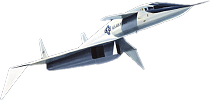RIPP_n_WIPE wrote:Well I don't know that much about ballistics. I DO know that the majority of bullets lengths are due to propellant,
You mean a complete round of ammunition, usually consisting of primer, brass case, propellant, and projectile (aka The Bullet). Most cases are longer than the bullets they are designed to accept
RIPP_n_WIPE wrote:not to what actually hits the target (usually only about a quarter of the bullet actually hits you if the .222 i have infront of me is standard).
Yes, the 'quarter of the bullet' is the projectile that the entire point of the gun is about. The rest of the round, consisting of a spent primer and brass case, is what gets ejected out the breech of the weapon after the propellant is burned and the projectile (THE BULLET!!!) exits the barrel.
RIPP_n_WIPE wrote:In a coil gun (not rail gun) there is no need for a propellant so the shells don't need to be so big, just massive and dense.
Same goes for railguns as well. A coilgun shot needs to be ferromagnetic, while a railgun armature simply needs low sliding friction, good conductivity, and high specific heat.
As for 'massive and dense', a long-rod kinetic penetrator made of tungsten alloy or depleted uranium would be grand.
The propellant is electrical energy converted from mechanical energy (through a generator) ultimately derived from chemical combustion, nuclear fission, fusion, or what-have-you (via an engine or reactor-coolant loop with a turbine in one of any number of configurations).
RIPP_n_WIPE wrote:I do know that more stuff hitting you is going to do more damage but I'm sure that if I made a graph of some kind their has got to be a sort of curve at which the mass, surface area, and etc aren't efficient for such a big shell.
Yes, a lot of mass striking a small area of a target (usually the same area as the projectile radius pi r squared in the case of round, width times height for your presumably rectangular bricks [well-suited for a space-only railgun, btw], or more complicated formulas for hexagons, ellipses, etc.) is highly advantageous for penetration, which brings me to another question.
What role are these weapons for? Armor defeat, orbital bombardment, cratering, soft target destruction, suppression of fighters, CIWS; what? Each one of these mission roles dictates the design and selection of your projectile and velocity, and by extension, the gun design/size and the design of the ship to carry how many of which guns.
For general military craft, you will want polyvalent capability. Special ships and weapons are ok for specific missions as long as you understand how they sacrifice capability against targets they're not optimized against. You don't want to try to attack a hardened planetary bunker with a space-only light antispaceship projectile, for example.



